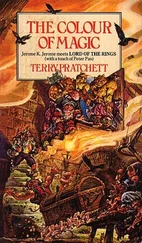In the foundry by the fondamenta, Marco provided tesserae in every colour: azzurro, beretino, lactesino, rosso and turchese, so that there were blue days and green days, white days and black days. He would experiment with imitation jewellery, vases, bottles, and even beads. He took long tubes of glass and ran a fine wire through their centre, working them over the fire, before cutting them into tiny sections so that they emerged as rounded as pearls. When they had cooled he gave them to his wife and son to thread, and together the family created rosaries, bracelets, and necklaces in imitation quartz and pearl.
Paolo would play with Teresa’s ring, a sapphire, placing it on each finger, or rolling it along the ground before holding it up against the light. It was the most precious object she owned, given by her mother just before her death, and she watched Paolo as he played. Perhaps, one day, his wife would wear it.
When Paolo was nine years old, Marco let him blow his first piece of glass. The rod felt heavy in his hand and his father was forced to steady him, but Paolo blew so hard that the glass fell straight off the end, glooping down in a bulbous mass onto the floor.
He then learned how to hold the shaping tongs. He was shocked by the delicacy required; how the incandescent mixture at the end of the pipe could change with the slightest of touches. It was important to be patient, to shape, and reshape, add colour, blow, re-melt, and take time. He was amazed when the glass ballooned out like a foreign object, each globule different in colour, form, and texture, and how quickly he had to work if he wanted to control the molten substance before him.
At times, in the heat and haze of the foundry, Paolo found it hard to concentrate on the end of the blowpipe, or even see it clearly. It was too difficult, and his eyes began to smart.
Marco laughed, placing the rod back in the furnace each time Paolo made a mistake, re-melting again and again until his son learned each skill required.
‘Anyone would think you were blind,’ he teased.
Paolo apologised, embarrassed by his inability to learn quickly. His father always made it look so effortless.
But Teresa had noticed that her son was almost afraid of the glass. Perhaps it was the heat of the flames, the heaviness of the blowpipe, or the fear of disappointing his father. She tried to ask why he was so hesitant in front of the furnace, glass, and rod.
‘I am not fast,’ Paolo would reply, and Teresa would comfort him, telling him that he was young, that he would learn, and that he need not be afraid of his father.
She took him to church each morning and prayed for his soul every evening, convinced of the daily need to prepare for the Last Judgment. She taught Paolo that everything that took place on earth was part of God’s plan. He must understand the pattern that lay behind his life, and learn of the divine purpose that would lead to salvation from death.
At Mass each day, she looked up in terror as the priest explained the torments of hell in comparison to the bliss of everlasting life; the great chasm of despair that lay between those who would be tortured for evermore and those blessed with eternal felicity. The cleric compared the stench of hell with the sweet perfume of paradise, the screech of the damned with the songs of the saved, and warned of the infernal peril awaiting the unrepentant and the doomed.
Teresa was rapt in religious fervour, holding Paolo tightly against her, while Marco sighed each time the priest made a comparison between the furnaces on the island and the eternal fires of hell, as if no one had thought to make such a connection before. If he could withstand the daily heat of his furnace then the fiery pit of his future held little terror.
Marco had never quite shared the faith of his wife. He was prepared to sit quietly by her side and admit that he was not perfect. He was even willing to make his confession in return for the promise of paradise. But he could not believe the miraculous ‘proofs’ of faith that the priests had told Teresa. He had never been able to accept that St Olga had lived to the age of nine hundred and sixty-nine; that St Hilarion had survived on fifteen figs a day; or that St Andrew Anagni had once resurrected all the roast birds he had been given for dinner.
Yet when Teresa looked at the church in which she worshipped, built to provide a glimpse of heaven on earth, every story and detail had meaning. She would tell Paolo to compare each stone in a mosaic to a human life and to concentrate upon it. He should know that although a fragment might mean nothing when looked at on its own, it was an essential part of the complete picture, the sum of human life, and only made sense when seen with all the others. Such is the way, she believed, that God looks down upon his creation.
Paolo looked at the mosaic and wondered which his stone might be: whether it lay high or low, in shadow or in darkness. At times, in the early morning, when the sun shone through the windows and caught the gold in its glare, he found that he was forced to squint away from the light, so brightly did it shine. And then, in the darkness of the evening, when they went to pray once more, he would have difficulty making out the shape of the stones in the distance, or discerning the pattern they made.
He would rub his eyes in order to see better, and Teresa would ask him what was wrong. Paolo told her it was nothing. He did not want to alarm his mother or anger his father, and so he would return to the church of San Donato on his own and look at each mosaic closely. When Teresa asked him again what he saw he would no longer guess but remember.
Over the next three years his sight continued to decline.
One evening he was returning from collecting alder wood out near the marshes with his mother. Teresa had lost all sense of time and found it strange that the clock on the campanile stated that it was only five in the afternoon. She wondered aloud if it was accurate.
Paolo asked what she meant.
‘Look at the clock.’
‘Where?’
‘On the campanile.’
‘I can see the campanile, but I cannot see the clock.’
Teresa stopped.
‘What do you mean? You must be able to see it.’
‘I cannot.’
‘Then what can you see?’
‘I don’t know. I can see you. The canal. The houses.’
‘Can you see the people in the boat? The women washing?’
‘Not clearly,’ Paolo replied.
‘Did you notice that swift swoop away from you?’
‘I heard it. I know its call, but in the skies all the birds are as one.’
‘You cannot tell a swallow from a hawk?’
‘I do not know.’
‘How long have your eyes been like this?’
Teresa was suddenly afraid. She knew that Marco would not tolerate a son who could not see as clearly as he did. At the first sign of any weakness he would cast him out to fend for himself, forever dependent on alms, gifts, and the kindness of strangers.
‘Can you describe the end of the fondamenta – the man outside our foundry?’ she asked, beginning to panic.
‘I can, but it is hard. Is that a man or a woman?’
‘You cannot tell? The man has a beard.’
‘I cannot see it.’
‘Then what can you see?’
‘Nearby?’
‘No, far off.’
‘There is a wall, a shrine, and a cross.’
‘Can you see the flowers?’
Paolo paused. Were they roses, or lilies?
‘Can you?’ his mother insisted.
‘No.’
‘You cannot tell?’
Paolo could not. But he could see that Teresa was afraid. He knew that her eyes had narrowed and that she was angry: and he recognised that, from now on, he would have to be careful of his replies.
‘How can we live if you cannot work the glass?’ Teresa asked.
Читать дальше











